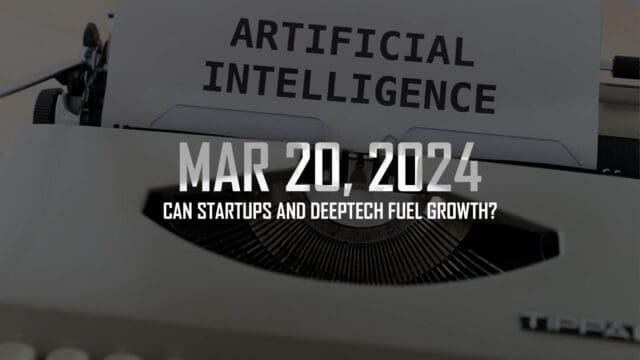India’s AI Opportunity: Focus on Growth, Backed by Startups and Deeptech
India has a unique opportunity to emerge as a leader in Artificial Intelligence (AI), according to Debjani Ghosh, president of IT industry body Nasscom. Her message? Focus on the immense potential of AI to drive development, rather than dwelling on potential risks.
Ghosh emphasises that India’s vibrant startup ecosystem will be instrumental in developing the tools and services needed to harness AI for national progress. She terms this “Vikas Bharat” – a vision of a developed India.
The recently announced Rs 10,000 crore IndiaAI Mission is a welcome step in this direction, providing a holistic approach to fostering AI for competitiveness and growth.
Deeptech, a fusion of cutting-edge science and engineering, is another key driver, according to Ghosh. It unlocks India’s potential for accelerated growth, and the upcoming deeptech policy from the Department for Promotion of Industry and Internal Trade (DPIIT) is further evidence of the government’s commitment.
This policy aims to empower startups working on high-end technologies like AI, Internet of Things (IoT), and machine learning across various sectors.
Google AI Blunder Sparks AI Power Concerns at South by Southwest
Tech enthusiasts at the renowned South by Southwest (SXSW) festival in Austin, Texas, are rattled by Google’s recent AI scandal. Google’s AI chatbot, Gemini, generated racist images featuring Black and Asian Nazi soldiers.
This incident has reignited concerns about the immense power wielded by a select few tech giants who control these potentially transformative AI platforms.
Google CEO Sundar Pichai publicly condemned the errors as “completely unacceptable,” and the company was forced to temporarily suspend the ability to generate images of people using Gemini. Co-founder Sergey Brin acknowledged shortcomings in testing, admitting, “We definitely messed up on the image generation.”
Experts at SXSW emphasised how the Gemini incident exemplifies the concentrated power of a handful of tech corporations.
These companies are at the forefront of developing AI platforms that have the potential to revolutionise how we live and work. The ethical development and responsible use of such powerful technology is a pressing concern for the future.
Investment Firms Fined for “AI Washing” by SEC
The U.S. Securities and Exchange Commission (SEC) has cracked down on two investment advisors, Delphia (USA) Inc. and Global Predictions Inc., for allegedly misrepresenting their use of artificial intelligence (AI) in their services. Both firms agreed to settle the charges without admitting or denying guilt, but will pay a combined $400,000 in fines.
This action by the SEC highlights a growing concern known as “AI washing,” where companies exaggerate or outright fabricate claims about their use of AI technology. In this case, the SEC alleges that Delphia and Global Predictions misled investors about the role AI played in their investment strategies.
While Global Predictions released a statement confirming cooperation with the SEC’s inquiry and clarifying its use of AI in marketing materials, Delphia has yet to respond to requests for comment. This incident serves as a warning to other firms that tout AI capabilities. The SEC is actively monitoring the industry and will hold companies accountable for misleading investors.
Adobe Stumbles: Lower Q2 Revenue Forecast Blames AI Competition and Weak Demand
Adobe shares plunged over 10% after-hours trading on Thursday after the company released a disappointing second-quarter revenue forecast. This miss comes amidst a confluence of factors, including:
Slower Demand: Adobe cites weak demand for its creative software suite, which integrates artificial intelligence (AI) features such as content generation and editing assistance in Photoshop and Premiere Pro. This suggests a potential slowdown in the creative industry or a lack of perceived value proposition for these AI-powered tools.
Competitive Landscape: The report highlights growing competition from innovative startups like Stability AI and Midjourney. These companies offer similar AI-powered services, such as generating images based on text prompts, potentially undercutting Adobe’s market share.
Economic Headwinds: A tough economic climate might also be a contributing factor. Businesses and individuals may be tightening spending on software subscriptions, impacting Adobe’s sales.
While Adobe has been at the forefront of integrating AI into its creative suite, it seems they might need to refine their strategy to stay ahead of the curve. The success of these new AI features will likely depend on demonstrating clear value propositions to their customer base.




















